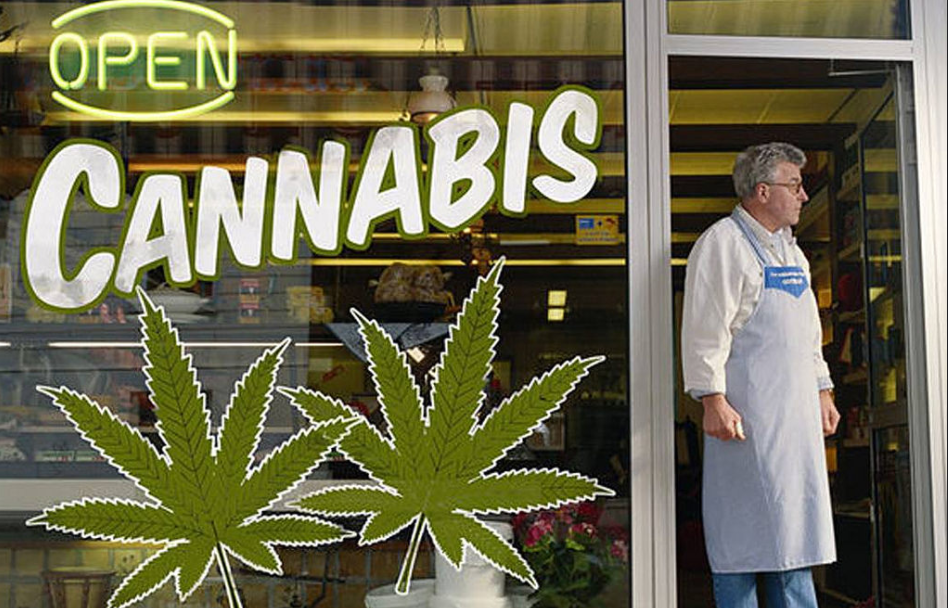Photo courtesy of Flickr
By Noah Ruh
When the United States was under the Obama Administration, law-abiding businesses that sold marijuana for recreational use typically stayed buoyant from federal harassment — despite marijuana still being illegal federally. This policy assisted marijuana to thrive as one of the fastest growing industries in the United States in 2016. However, under the Trump Administration, marijuana policies are being reshaped.
Canada’s marijuana policies are are also undergoing change. Customers that find themselves walking down Queen Street West, a shopping district in Toronto, are confused with visible marijuana dispensaries advertising themselves as medicinal or recreational, both of which are completely illegal as of now. Interestingly, the future of one country can impact the other, as the political winds in Canada can impact Seattle legal weed prices. Let’s clear up the haze and go further into the future of the cannabis industry for both of these countries.
U.S. Cannabis
Oregon, Alaska, and Nevada, the newly legalized states, have each accumulated over 60 million dollars in tax revenue. Washington made over 100 million, and Colorado collected over 200 million dollars in tax revenue tied to pot sales in their 2016 fiscal year. That doesn’t even account for the thousands of new jobs that the marijuana industry has created — growers, retailers, lab testers, etc. Retailers like Area 52, are advancing the industry, do good by their customers, selling a life enhancing product and producing valuable tax revenue all at the same time.
In 1969 only 12 percent of Americans supported marijuana use. Today over 60 percent of Americans say that marijuana should be legal. However, the U.S. government still classifies marijuana as a “Schedule 1” drug, which is considered a category for the most restricted drugs. Cocaine and heroin are considered “Schedule 2” drugs. Those that are caught with marijuana in a non-legalized states can face a variety of fines, penalties, and even jail time depending on the severity.
Marijuana enforcement is becoming more of a priority with the newly appointed Attorney General, and notorious anti-weed crusader, Jeff Sessions. Sessions is revoking Obama’s hands-off approach to the marijuana industry and encouraging federal prosecutors to attack dispensaries regardless of their state laws — a move that has been opposed by Republicans and Democrats alike, especially those in states with legal cannabis.
Sessions, who according to The Washington Post, has made comments like, “I thought those guys [the Ku Klux Klan] were OK until I learned they smoked pot,” and “Good people don’t smoke marijuana,” may just be getting started with his fight toward ending both medicinal and recreational marijuana use, leaving legalized states concerned they might lose a massive chunk of tax revenue.
Canada Cannabis
Some Canadian dispensaries look something similar to walking into an Apple store — a modern grey glow that emanates from the walls, with weed selections laid out on marble counters — while other dispensaries are in dark, mostly unfurnished rooms with nothing but a fold-out table and a single fluorescent light bulb that dangles from the ceiling. Some claim to be medicinal, others recreational; both of them, however, operate illegally.
Rolling Stone Magazine recently called a dispensary in Toronto, and according to Rolling Stone, a woman answered the phone saying customers are not required to have a prescription in order to make a marijuana purchase. They asked her if the transaction was legal, and she said “no” and that their business is “peacefully breaking the law.” When Rolling Stone asked if they could have an in-person interview, she immediately hung up the phone.
To make matters even more confusing, one Canadian who asked to remain anonymous told Rolling Stone that he walked into a dispensary to buy pot and was given a form that asked for personal information, medical needs for cannabis, and a signature. Once the form was completely filled out, the dispensary associate immediately fed it to the paper shredder. The paranoia of a purposeless façade apparently runs deep in some dispensaries.
These visible bootleg dispensaries in Canada are making the status of marijuana very confusing for both tourists and residents. Prime Minister Justin Trudeau announced in his campaign that marijuana would be legalized in Canada by July 2018. Lawmakers are now scrambling for a way to formulate rules and industry sale standards with less than half a year left. These rules, however, are predicted to be very strict, and may create a contradictory predicament where more people may be arrested once pot is legalized.
Why Fight for Legalization?
Other than the recreational side effects of just “getting high,” marijuana has proven to be a safe herbal solution for specific medical issues like glaucoma, epileptic seizures, anxiety, muscle pains, sleep disorders and surprisingly, lung health, according to Business Insider.
When the Seattle Times asked researchers who is more dangerous behind the wheel: a drunk driver or a stoned driver, “evidence suggests we may not have as much to fear from stoned driving as from drunken driving. Some researchers say that limited resources are better applied to continuing to reduce drunken driving. Stoned driving, they say, is simply less dangerous.”
The facts check out: pot, as well as it's non-narcotic counterpart-hemp, can can be a major taxing profit, it actually targets certain medical issues, and it’s less dangerous than alcohol. This does not seem to faze lawmakers, especially those in the United States. For as long as there is aloof stubbornness in power, the marijuana industry may never see its full potential.


